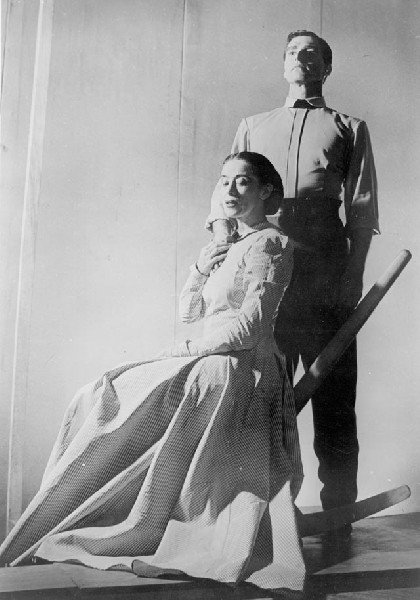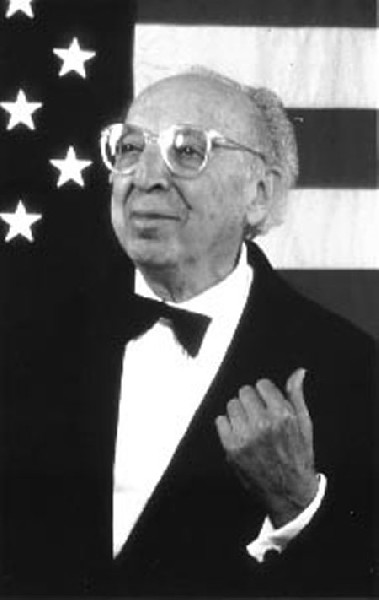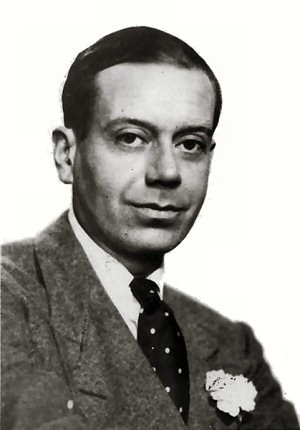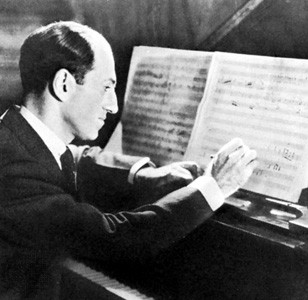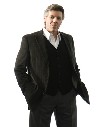Celebrating a New Year with Alan Gilbert & The New York Philharmonic
Thomas Hampson sings Copland and Cole Porter
By: Susan Hall - Jan 02, 2010
Alan Gilbert, Conductor
New York Philharmonic
Thomas Hampson, Baritone
Appalachian Spring, Aaron Copland
Old American Songs, Aaron Copland
Medley of Cole Porter songs
An American in Paris, George Gershwin
Avery Fisher Hall
December 31, 2009
The New York Philharmonic heralded the New Year with one of its super event evenings. Under the baton of Alan Gilbert, we were treated to an all American evening. Blue baubles dangled from the ceiling, balconies were draped in swathes of blue. The ladies of the orchestra wore bright evening dresses of yellow, red, and blue silks and sequins.It was a celebratory atmosphere for an audience which welcomed in an exciting new era at the Philharmonic during 2009.
Aaron Copeland's Appalachian Spring opened the evening's festivities and Maestro Gilbert's artful command was immediately apparent in a sound as simply gorgeous as it was shaped and distinctive. Copland had composed the piece for Martha Graham, who appreciated colloquial American style as much as he did. About the American-ness of the piece, Copland has written: "Nobody else seems quite like Martha. She's so proud, so very much herself. And she's unquestionably very American: There's something prim and restrained, simple yet strong, about her which one tends to think of as American." The score is an astounding absorption of the American vernacular.
Watching the Graham choreography on You Tube, one wonders why the marvelous collaboration did not continue, but it had come about long distance. Copland was in Hollywood, Cambridge and Mexico as Graham worked in New York and the Pittsfield Festival. Copland was not timely in his delivery, so, although Graham was grateful, Copland relied on the material she sent him. There was no easy plane travel, much less video phoning in those days. This is the only work they did together.
The ballet was titled by Graham just before its premier in October of 1944. Copland remembered in his own unique American twang: "The first thing I said to her when I came down to the rehearsal...was "Martha, wha-d'ya call the ballet?"
"Appalachian Spring."
"Oh,' I said, 'What a nice name. Where'd'ya get it?"
"It's the title of a poem by Hart Crane."
"Does the poem have anything to do with the ballet."
"No, I just liked the title and took it."
Copland continues, "Over and over people come up to me and say...'I just feel spring.' I've begun to see the Appalachians myself a little bit."
While other Copland compositions have more critical presence, none hold the iconic stature of Appalachian Spring, a perfect way to start an American evening.
Copland was much appreciated by other contemporaries, including Benjamin Britten and Peter Pears, who commissioned his Old American Songs, sensing the Copland oeuvre was short on vocal literature.
Thomas Hampson, one of our leading scholars of American song in addition to his mega career as an opera and concert baritone, gave us beautiful and fun renditions of a selection of these songs. "The Boatman's Dance" echoes the marine life of Britten's childhood. That bold, large song was wonderfully sung. Also particularly noteworthy was the pianissmo achieved in the final verse of "The Golden Willow Tree." Interestingly, Copland's songs are in the major mode, except for "The Little Horses" in dorian, a lullaby performed with exquisite dynamics by Hampson, and the modally ambiguous "Willow Tree." These two songs are also the only true folk songs in the series, passed down from generation to generation without attribution.
Conventional wisdom suggests a singer is better off with an orchestra than accompanied by piano. The different sounds of instruments enrich his ear and inspire. How balance is achieved, however, when the orchestra is on stage sending sound on the same plane as the singer, can be a problem. Perhaps for this reason Hampson appeared with a mike for the second half of the program.
Hampson's versatility was on display in a medley of Cole Porter's songs, starting with the "beat, beat, beat of the tom, tom," and the "tick, tick tock of the stately clock" (counting down to midnight this New Year's Eve?) in "Night and Day." Hampson took off in "Where is the Life I Late Led." While "Simple Gifts" in the Old American Songs, harked back to Appalachian Spring, "Who Said Gay Paree?" forecast An American in Paris, the George Gershwin finale in a smashing rendition. I was not so aware of Gershwin's yearning for the Hudson River in the blues portion, but during the violin solos, I quite distinctly imagined Ratatouille in his little attic window, looking out at the Eiffel Tower.
I wondered how we would be sent off into the night to celebrate, and wished for the Strauss' Radetsky March, a staple in Vienna. That would have been Un American on this all-American evening.! Would Auld Lang Syne slip across customs in the current security atmosphere? Written by the Scot Robert Burns in the 18th century for Hogmanay (Scottish New Year's) it is not native American. Like most Americans it immigrated to the US. I bet with my companion that this would be the choice for finale, and won. Hampson did not sing solo, instead inviting us all to join in his personal vocal space with our own singing. He is known for his generosity of spirit.
My New Year's resolution. To treat myself to these wonderful events at the Philharmonic and to open my ears and heart to new music, like the Philharmonic's Contact series. Hampson is next up with the orchestra in a program including Haydn and Schubert, and will sing the "Wound Dresser" by John Adams based on the Walt Whitman poem on January 14, 15 and 16.

